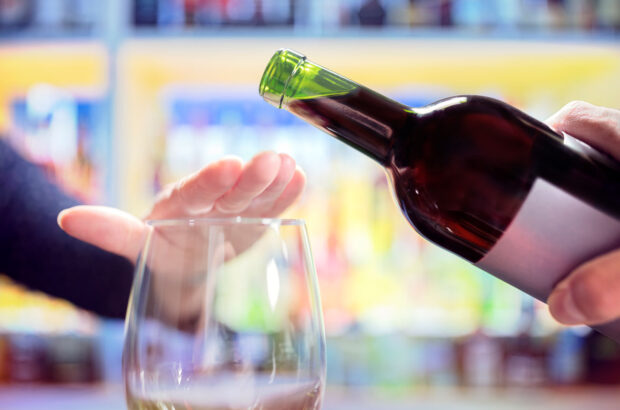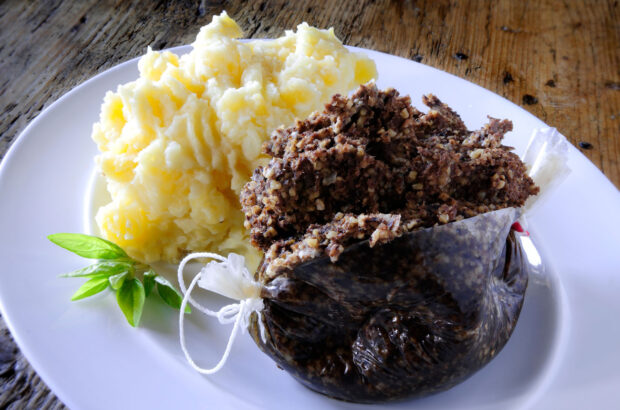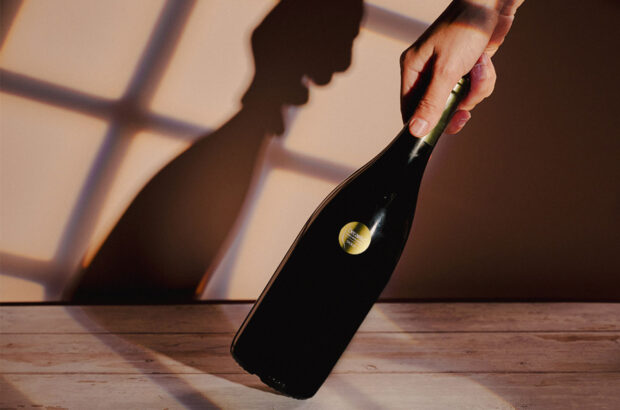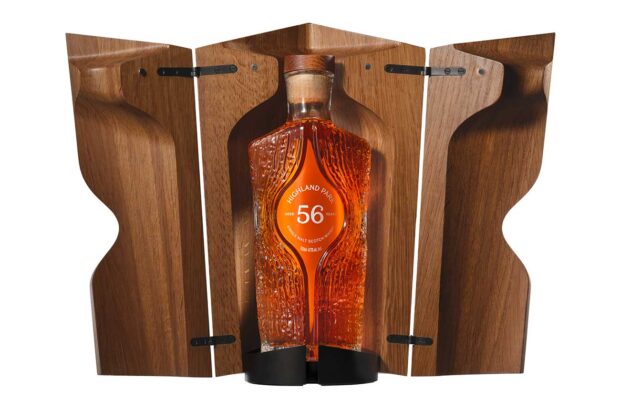In March 1933 millions of Americans toasted President Franklin D. Roosevelt after he repealed the Prohibition. National morale was at rock bottom amid the Great Depression, so the new president declared: ‘I think this would be a good time for a beer.’
Ninety-two years later, the spectre of prohibition looms over the nation once again. This time, the new president is an avowed teetotaller. Donald J. Trump, the former star of The Apprentice, has already said ‘you’re fired!’ to several agency heads as he begins to reshape the government in his image.
One outgoing heavyweight is the US surgeon general, Dr Vivek Murthy. He was dismissed by President Trump in 2017 before Joe Biden reinstated him to the role four years later. Dr Murthy is now leaving once again, but not before firing a parting shot at winemakers. Earlier this month, he called for stronger warning labels on alcoholic drinks, akin to those placed on cigarette packs.
Some may view this as a draconian step, but Dr Murthy believes these labels would alert drinkers to the risks of cancer. He warned that alcohol contributes to approximately 100,000 cancer cases and 20,000 related deaths annually in the US. Dr Murthy underscored a particular connection between alcohol consumption and cancers of the breast, colon and throat, even at levels deemed ‘moderate’ by current dietary guidelines.
‘Many people assume that drinking within current guidelines – one drink per day for women, two for men – is risk-free,’ he said. ‘The data does not bear that out.’
Conflicting studies on alcohol’s health impacts
Dr Murthy’s intervention comes at a tense time for winemakers, distillers, brewers, bar owners and restaurateurs. The US government is preparing to update its alcohol consumption guidelines, and policymakers will use two duelling studies to inform their decisions.
In December, the National Academies of Sciences, Engineering, and Medicine (NASEM) published a comprehensive examination of the effects of alcohol. The authors found that moderate drinking is associated with fewer deaths from heart attacks and strokes, and fewer deaths overall, compared to abstinence.
The NASEM analysis did acknowledge that moderate drinking among women was linked to a small increase in breast cancer, but it said there was insufficient evidence to link alcohol to other cancers. Dr Murthy did not mention the NASEM review when calling for health warning labels on wines, beers and spirits.
This month, a scientific panel commissioned by the Department of Health and Human Services (HHS) published a conflicting review. The analysis argued even minimal alcohol consumption raises cancer risks. The authors also dismissed earlier claims about the cardiovascular benefits of moderate consumption. Co-author Dr Timothy Naimi said: ‘What a lot of folks may have considered “moderate” drinking is actually moderately risky.’

Credit: Bulat Silvia / iStock / Getty Images Plus
Will health warnings be added to wine bottles?
Some wine lovers may be alarmed by the potential of cigarette-style cancer warnings being slapped on bottles of Napa Cabernet. However, Dr Murthy’s proposals face significant legislative hurdles.
Only congress can mandate new health warning labels. It could be difficult to gain broad approval for the plans during these polarised times, and congress currently has far bigger issues on its plate.
There is also nothing to suggest that the new administration will support the proposal. After all, Dr Murthy has already been ousted.
The new president does not drink, but he bought a Virginia winery in 2011 which is now run by his son, Eric. He also made an unsuccessful foray into the industry by launching Trump Vodka. His choice to head the Department of Health and Human Services, Robert F. Kennedy Jr, quit drinking decades ago and regularly attends AA meetings, but he is by no means a prohibitionist.
It’s also worth noting that the new administration has promised to cut regulations and reduce the size of the government. That does not exactly scream nanny-statism.
The industry response
Unsurprisingly, the drinks industry has pushed back against Dr Murthy’s proposals. A coalition of beer, wine and spirits producers, wheat, barley and hops growers, restaurateurs and bartenders also poured scorn on the HSS study.
The group accused the authors of bias and conflicts of interest. For example, the group said that Dr Naimi received support for a meeting from an organisation that promotes temperance.
‘We are committed to science over bias,’ said the group, which represents 23 trade bodies, including Wine America and the Wine and Spirits Guild of America. ‘This report heightens our concerns that the dietary guidelines for Americans’ recommendations with respect to alcohol will not be based on a preponderance of sound scientific evidence.
‘Many lifestyle choices carry potential risks, and the consumption of alcohol is no exception. We encourage all adults who choose to drink to adhere to the dietary guidelines and consult with their health care providers.’

Credit: Generistock / iStock / Getty Images Plus
The medical evidence: For and against moderate drinking
There is no question that heavy drinking is harmful. However, the relationship between moderate drinking and health is far more nuanced.
Advocates often cite studies linking light alcohol consumption to reduced risks of diabetes and certain cardiovascular events, including blood clots. Critics say there is no safe level of alcohol consumption. They have also dismissed the methodology of earlier studies highlighting the benefits of moderate consumption.
‘There is no dose of alcohol for which the cancer risk decreases,’ said Dr Ahmed Tawakol, a cardiologist at Massachusetts General Hospital. Others, including Dr Katherine Keyes of Columbia University, argue that the potential harms outweigh the benefits, even at low consumption levels.
Dr Murthy acknowledged that most alcohol-related cancer deaths are caused by people exceeding the current guidelines. However, he stated that the risk of cancers of the breast, mouth and throat may increase if you enjoy just one drink per day.
Dr Peter Monti of Brown University supports the plans for sterner warning labels on alcoholic drinks, but he admits that the scientific evidence isn’t perfect. ‘There hasn’t been a study where some people have been randomly assigned to drink one alcoholic beverage a day and other people have been assigned to drink no alcohol at all, with all followed over time,’ he said. ‘That type of study would be very expensive, and some of the health effects would take months and years to develop.
‘Ultimately, a randomised control study with humans is what we need to conclusively prove a causal link between alcohol consumption and cancer. But in the meantime, we have a lot of persuasive evidence.’
Have any countries implemented health warning labels?
Right now, South Korea is the only country that imposes health warnings about cancer on labels, although producers can choose alternative labels that don’t mention liver cancer. However, Ireland is gearing up to introduce labels highlighting a ‘direct link between alcohol and fatal cancers’ in 2026.
Attitudes to alcohol consumption are shifting too. For example, France’s new health minister recently became the first leading politician to back Dry January. Yannick Neuder defied the country’s wine-loving president, Emmanuel Macron, by urging his compatriots to ‘think about their drinking habits and realise the benefits of taking a break’.
Yet he is arguably preaching to the converted. The average French adult consumed 120 litres of wine per year in the 1960s, but that has now fallen to just 40 litres, according to the Observatory for Drugs and Drug Addiction.
The same trend is playing out around the world, including the US. Alcohol consumption in America declined by 2.6% in 2023, according to IWSR, and it is projected to have fallen by a further 1.9% in 2024.
However, Dr Murthy hopes to accelerate the trend. ‘I wish we had a magic cutoff we could tell people is safe,’ he said. ‘What we do know is that less is better when it comes to reducing your cancer risk. If an individual drinks occasionally for special events, or if you’re drinking a drink or two a week, your risk is likely to be significantly less than if you’re drinking every day.’

Credit: Peter Dazeley / Photodisc via Getty Images
Will alcohol follow in tobacco’s footsteps?
Some commentators hope to see alcohol receive similar regulatory treatment to tobacco. For example, Dr Monti compared the current debate to early anti-tobacco efforts. He suggested that similar public awareness campaigns and warning labels could ultimately reduce alcohol-related deaths.
Fellow professor Timothy Rebbeck of Harvard University suggested that warning labels are just the start. He noted that the surgeon general first flagged the dangers of smoking in 1964, but it took decades for advertising bans, public smoking bans and punitive taxes to be imposed. ‘It took time for people’s mindset to change and it’s going to be the same for alcohol,’ he said.
However, it’s worth remembering that there are significant differences between smoking and drinking. Smoking is simply bad for your health, even in moderation. By contrast, many studies suggest that moderate drinking is not harmful, and it may even be beneficial.
It will be interesting to see which of the duelling studies holds the most sway with US policymakers when they release the new guidelines.
The NASEM study asserted that those who consumed moderate levels of alcohol had a 16% lower risk of all-cause mortality than those who never drank. It’s a highly comprehensive 230-page report, which reasserts the benefits of moderate drinking. We should also note that alcohol can play a vital role in bringing people together, and these strong social bonds can promote longevity. Just look at the wine-loving centenarians in ‘Blue Zones’ like Sardinia and Icaria.
Anti-alcohol campaigners such as Dr Naimi pushed back with a conflicting report, but that’s all part of the natural ebb and flow of this debate, which has raged on for decades. This is a complex issue, which has been subjected to rigorous examination, but researchers still cannot agree on whether moderate consumption is good or bad. Kenneth Mukamal and Eric B. Rimm hit the nail on the head when they published a piece on Harvard Public Health site last year with this title: ‘Is alcohol good or bad for you? Yes.’
In lieu of one, we’ll leave the last word to Sister André – previously the world’s oldest person – who died in 2023 at the ripe old age of 118. Her secret? ‘I drink a small glass of wine every day,’ the French nun told reporters.






